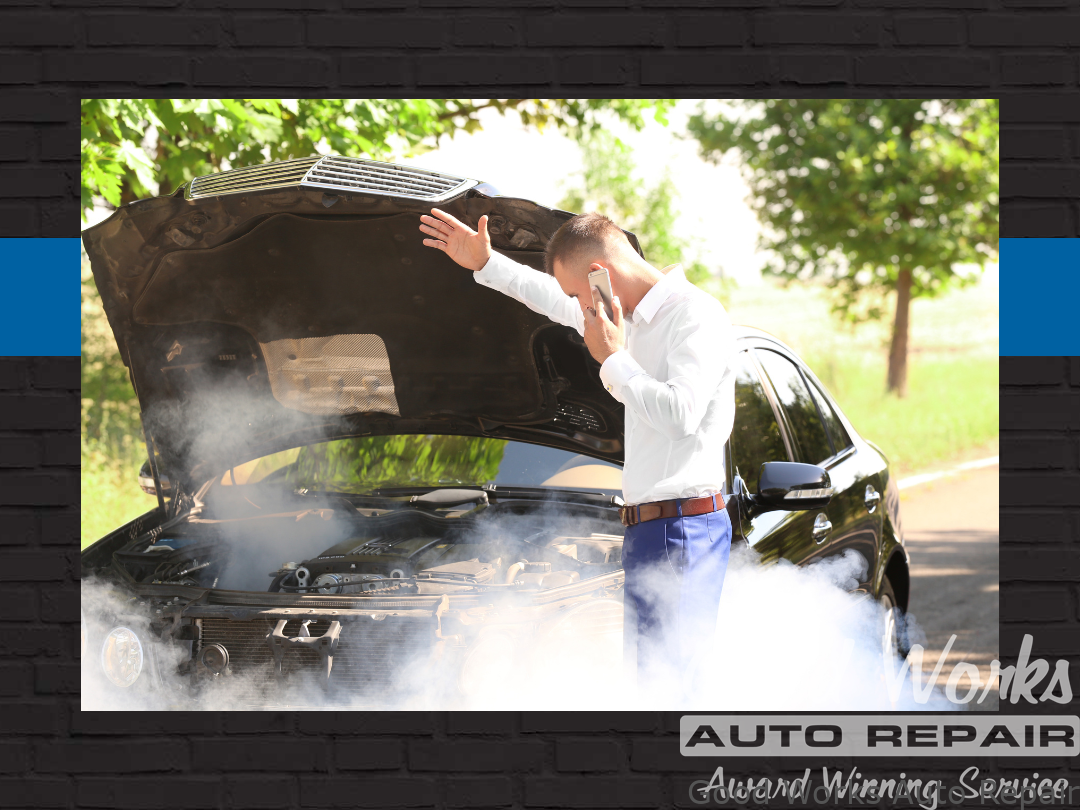
Would you know what to do if your vehicle is overheating? Unfortunately, many people don’t, but that’s exactly what we’re going to cover today.
Whereas modern vehicles tend to be sophisticated cooling systems with heat sensors and computer controlled fans to keep your engine operating in all types of weather, it is still possible for your vehicle to overheat. But being aware of common signs and symptoms and being prepared can help prevent a bad situation from getting worse.
Why do cars overheat?
There are several reasons why a vehicle can overheat. It’s usually because there’s a problem with yours cooling system where it does not let the heat escape engine compartment It could be a leak or a blockage inside cooling system itself or another related component. Overheating can also be due to a faulty or broken water pump or radiator fan, low oil, a faulty thermostat or a clogged coolant hose. They may not sound like the most important parts, but they sure can wreak havoc on your vehicle if they aren’t working properly.
What signs should you look for if your vehicle is overheating?
Every vehicle and situation can be different, but here are some common signs to look out for if your vehicle is overheating:
- Steam (or what looks like smoke) coming out from under the hood.
- The engine temperature gauge (located on the dashboard) has risen to H or is moving into the red area of the gauge.
- Unusual odors from the front of the car, especially near or under the hood. Coolant leaks tend to have a sweet smell, but oil leaks tend to have more of a “burnt” smell.
How can you prepare?
It doesn’t take much to be ready. Keeping a few simple items in your trunk could be helpful if your the vehicle is overheating. Consider having a kit with:
- Several quarts of oil
- A small toolkit with the practical basics
- 1 gallon of coolant (think a 50/50 mix of antifreeze and water)
- A towel
- Heavy duty gloves (think safety)
Your vehicle is overheating… What should you do now?
- Turn off the air conditioner and open the windows.
- If your vehicle continues to overheat, turn the heater and fan as high as they can go. Yes, we know it can be hot.
- If you are not driving at this time, put the vehicle in neutral or park and rev the engine slightly to circulate fluids and air through the radiator.
- Avoid frequent braking that puts extra strain on the engine. Use the gas pedal and brake only when absolutely necessary.
- If you are driving and steam or smoke obstructs your view, pull over carefully in a safe area, turn off the vehicle, raise the hood, and allow the engine to cool for a while. Never touch the engine! It will be too hot and too unsafe. You may need to tow your vehicle to a repair shop so that it can be inspected and repaired for a certified automotive technician .
We know how much you trust your vehicle. You need it to be safe and reliable. Making sure you’re getting preventive maintenance services when recommended is essential to avoid overheating. While we can’t guarantee it will never happen, knowing what to look out for and what to do can help prevent a more serious situation. Call us at schedule your next appointment and let’s take a look!


